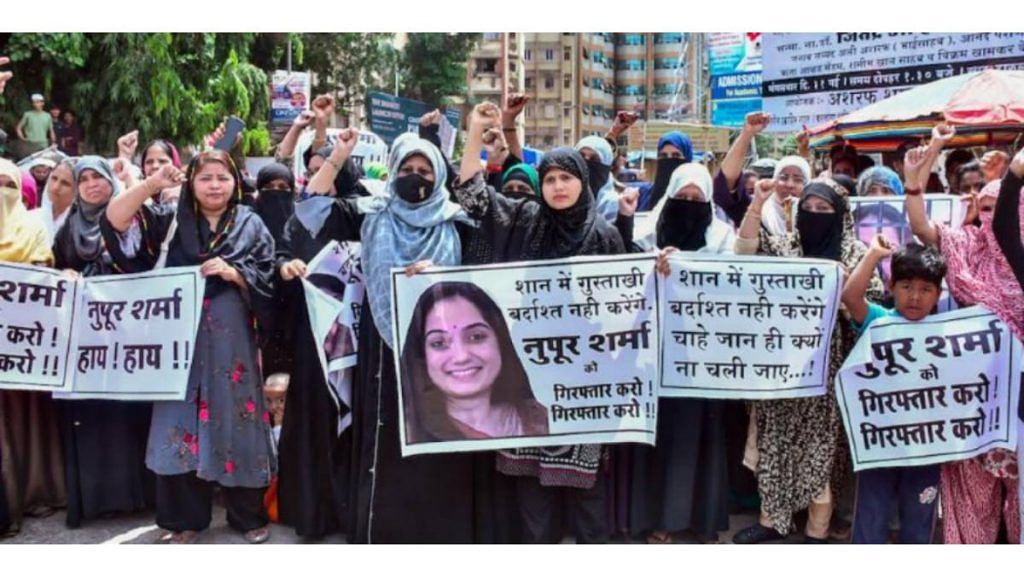Over the last week, media houses have been competing with each other to chase the latest updates on the Nupur Sharma controversy. They have been reporting on the slightest details of every move of every political actor involved. Politicians have called for stricter laws and order mechanisms to control violent protests. Transparent reporting is essential, and so is addressing the violence. But the approaches that the media and politicians adopt to achieve these end goals are inherently problematic.
It’s hard to place a finger on when and where all of this really and truly began. But I know for a fact that one woman’s words unleashed the collective resentment burning within. We are in the midst of so much mudslinging, counter mudslinging, and counter-counter mudslinging that it is easy for us to understand that our society is deeply polarised. And I believe we can all agree that this is not the India we want to grow up in, and definitely not the India we want to raise our children in.
The current media reporting trends are simply adding to our collective trauma. Minute-by-minute updates about the bulldozing of an individual’s home and thereby identity, on the virtue of their political or religious beliefs simply fuel fear. This fear that arises from the human instinct for self-preservation can be blinding. It can lead to the kind of violent action that destabilises society.
Stricter policing, curfews, ban on gatherings, and other law and order measures fail to generate the harmony we desperately crave. And this failure can be easily explained by Newton’s third law—every action has an equal and opposite reaction. Much like a plastic mug submerged in a bucket full of water that exerts a greater force on your hand as you push it farther down, extensive deployment of state security forces the violent groups to push back harder. The police try to silence the protesters, and the protesters scream louder is a classic example of sheer counterproductivity.
Young Indians in the country and beyond are anxious. Over the last few weeks, I have felt that aching sense of powerlessness at the bottom of my stomach. The other youngsters I speak to experience similar feelings. It feels like there is no point in being concerned because our concerns can never materialise into action.
And yet we recognise deep down that there is a better way to untangle the crisis at hand – investing in collective healing practices. Reframing this squishy mix of religious, cultural, and political turmoil as a collective wound we need to heal from together than as a battle where one side needs to be defeated and silenced can be a powerful tool.
Also read: Who is Nupur Sharma? DUSU ex-president & LSE alum now suspended by BJP for remarks on Prophet
But where do we begin? Listen with an open ear, and an open heart. Listen with an intent to understand the lived experiences of our fellow Indians. Sit down for difficult political conversations with people from the other side, and then focus on where their value systems come from. You don’t need to agree with their view of life. You simply need to recognise that you cannot disagree with each other’s experiences. Instead of coming up with the fiercest retorts to your political opponents, redirect your fear towards finding common ground. I think this is where our new political project should begin.
We must shift our focus away from sweeping the elephant in the room under the proverbial carpet. Recognition of the Indian identity in the global geopolitical arena is essential. However, it should not come at the cost of the real people and their ever-so-real fears about the socio-political climate that they live in.
Our politicians must lead the way by giving up divisive rhetoric and embracing empathetic conversations. Our media need to be platforms that drive these difficult yet empowering discussions. It is time for level-headed political discourse to replace hot-headed prime-time debates. I am referring to the kind of uncomfortable yet meaningful discourse that leaves people feeling fuller than when they walked into it. I believe that’s how India can and needs to heal.
The author is a student at BITS Pilani, Goa. Views are personal
